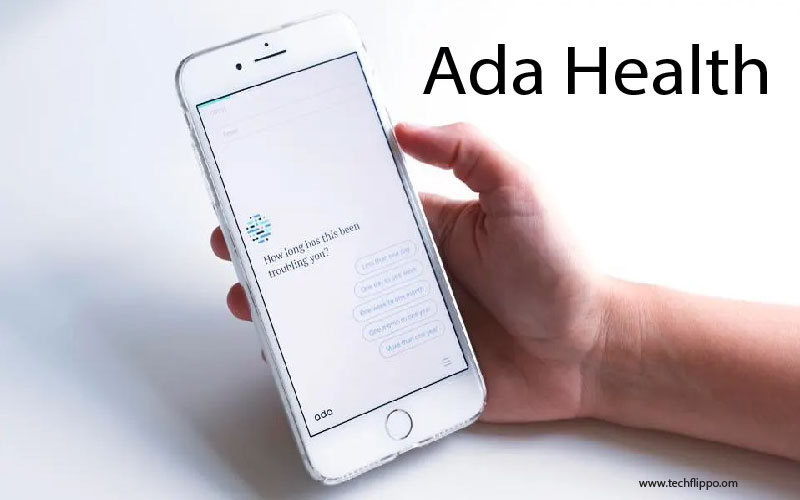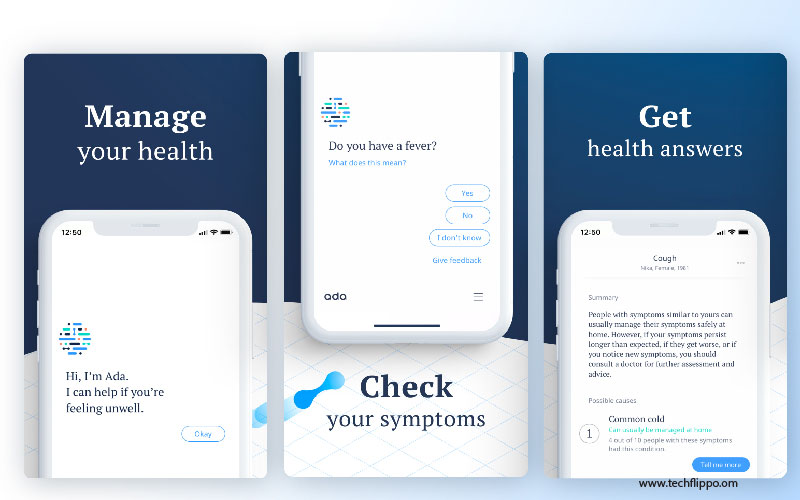An In-Depth Look at Ada Health’s AI Technology
In today’s fast-paced world, technology is revolutionizing every aspect of our lives, including healthcare. One standout player in this arena is Ada Health, a pioneer in artificial intelligence that aims to transform the way we approach medical diagnosis and personal health management. Imagine having a virtual health companion at your fingertips, ready to assist you with personalized insights and guidance based on your symptoms. With Ada Health’s cutting-edge AI technology, that’s exactly what users experience. This innovative platform not only empowers individuals but also enhances the efficiency of healthcare providers. As we dive deeper into the mechanics behind Ada’s remarkable AI capabilities, you’ll discover how it works and why it’s becoming an essential tool for many seeking clarity in their healthcare journey.

How Does Ada Health’s AI Technology Work?
Ada Health’s AI technology operates through a sophisticated algorithm designed to analyze user symptoms. When individuals interact with the platform, they answer questions about their health conditions and experiences. The AI processes this data in real-time.
Using machine learning, Ada compares input against a vast database of medical knowledge. It evaluates millions of possible conditions and scenarios based on the answers provided.
The system generates personalized insights that guide users toward potential diagnoses or recommended next steps. This process is not merely automated; it learns from each interaction, continuously refining its responses for improved accuracy over time.
Furthermore, by incorporating feedback from healthcare professionals, Ada ensures that its recommendations align with current medical guidelines. This synergy enhances trust and reliability in the information provided to users seeking clarity about their health concerns.
Benefits of Using Ada Health for Healthcare
Ada Health offers a transformative approach to personal healthcare. One of the standout benefits is its ability to provide immediate medical insights. Users can receive tailored health assessments in real-time, which can help identify potential issues early.
The platform also empowers users with knowledge. By engaging interactively, individuals gain a better understanding of their symptoms and possible conditions. This educational aspect fosters informed decision-making when seeking further care.
Moreover, Ada Health enhances accessibility. Patients can utilize this technology anytime and anywhere, breaking down barriers that often come with traditional healthcare systems.
Cost efficiency is another significant advantage. By potentially reducing unnecessary doctor visits, it saves both time and money for patients and healthcare providers alike.
This innovative tool not only makes healthcare more user-friendly but also encourages proactive health management among users across various demographics.
Challenges and Limitations of AI in Healthcare
While Ada Health’s AI technology offers remarkable advancements, it also faces notable challenges. One significant issue is data privacy. Patients are often hesitant to share sensitive information due to security concerns, which can limit the effectiveness of AI algorithms.
Another hurdle lies in algorithm bias. If the training data isn’t diverse enough, the AI might not perform well across different demographics. This could lead to misdiagnoses or inappropriate recommendations for certain groups.
Integration with existing healthcare systems presents its own difficulties. Many providers still rely on traditional methods and may resist adopting new technologies like Ada Health’s solutions.
Moreover, there’s a lack of standardization in how AI tools are evaluated and regulated within healthcare settings. This inconsistency can create confusion among both practitioners and patients about the reliability of these technologies.
While automation enhances efficiency, over-reliance on AI could diminish human judgment in critical situations where empathy and intuition play vital roles.

Success Stories of Ada Health’s AI Technology
Ada Health has made significant strides in transforming healthcare through its AI technology. One notable success story involves a patient who had been experiencing unexplained symptoms for months. After using Ada’s app, the AI provided insights that led to further testing and an eventual diagnosis of a rare condition. This not only gave the patient clarity but also opened doors for targeted treatment.
Another impressive case is that of a primary care clinic that integrated Ada into their triage process. The clinic reported improved efficiency, with patients receiving tailored health assessments before even seeing a doctor. This streamlined approach enhanced patient satisfaction while allowing medical staff to focus on critical cases.
These stories highlight how Ada Health’s AI serves as both an ally and innovator in medicine, demonstrating its potential to change lives by bridging gaps in traditional healthcare delivery systems.
The Future of AI in Healthcare with Ada Health
The future of AI in healthcare is bright, especially with Ada Health leading the charge. As technology continues to evolve, we can expect more personalized care tailored to individual needs.
Ada Health’s innovative algorithms will likely refine diagnostic accuracy even further. This means quicker identification of conditions and a streamlined approach to treatment plans.
Integration with other health technologies could enhance patient experiences too. Imagine real-time monitoring and feedback through wearables that connect seamlessly with Ada’s platform.
Moreover, as data privacy concerns grow, Ada Health is poised to set new standards for secure medical information handling.
Collaboration between AI tools and healthcare professionals may redefine clinical workflows, allowing doctors more time for direct patient interaction while relying on AI for informed decision-making. The possibilities seem endless as we look ahead at how Ada Health will shape tomorrow’s healthcare landscape.
Conclusion
Ada Health has carved a unique niche in the healthcare landscape through its innovative AI technology. By harnessing machine learning and natural language processing, it provides users with personalized health assessments. This empowers individuals to take charge of their own healthcare journeys.
The benefits of utilizing Ada Health are clear. It offers quick access to medical information and supports patients in understanding their symptoms better. Additionally, it can reduce the burden on healthcare systems by triaging cases effectively.
However, like any emerging technology, there are challenges ahead. Data privacy concerns and algorithmic biases must be addressed as they could impact trust in such solutions. Continuous improvement is vital for overcoming these hurdles.
Success stories abound from users who have found clarity through Ada’s platform. Many report feeling more informed about their health after using the app, which ultimately leads to better conversations with healthcare providers.
Looking forward, the future seems bright for AI in healthcare with Ada Health at the forefront. As advancements continue, we can anticipate even greater integration within clinical settings and enhanced patient outcomes.
The evolving role of AI promises an exciting journey ahead for both patients and professionals alike as they navigate this transformative era together.